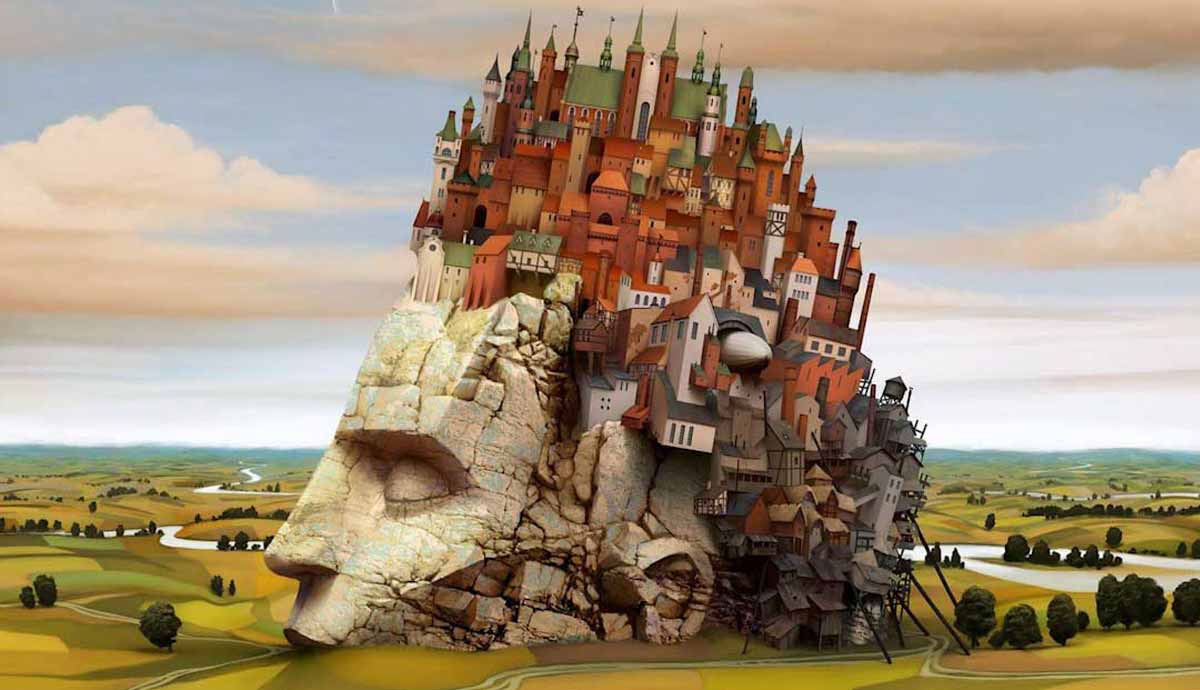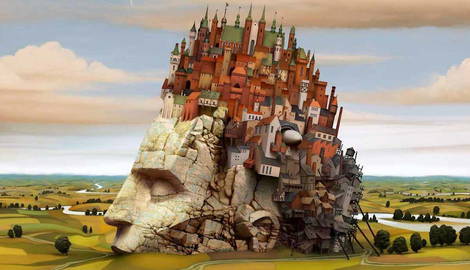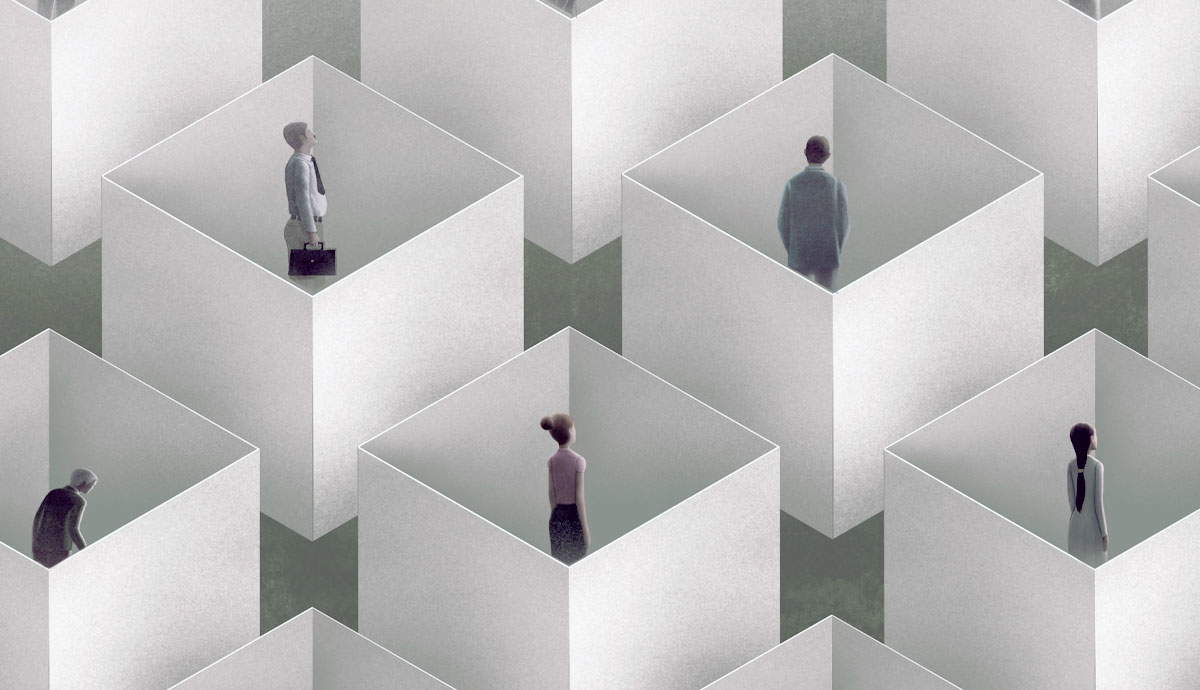
What would an ideal world look like? Most of us would agree that an ideal world is a place where everyone can live in peace and harmony; a place where there is no poverty or hunger, and where all people have the opportunity to reach their full potential. Unfortunately, there is no definitive answer to this question as it is, at least to some degree, a matter of personal opinion.
Some believe that the ideal state is one where everyone is happy and content with their lives. Others may think that the ideal state is one where there is perfect harmony and balance between all individuals and groups. Ultimately, what constitutes an ideal state depends on the values and beliefs we prioritize. In this article, we’ll take a look at the ideal world according to five famous philosophers: Plato, Thomas More, Campanella, Burke, and Godwin. We will explore what they believe the perfect world would look like and what it takes to get there.
1. Plato’s Ideal World: A Perfectly Balanced State

The theory of the ideal state is most fully represented by Plato in the Republic, and it was further developed in the Laws. According to Plato, true political art is the art of saving and educating the soul; therefore, he puts forward the thesis that true philosophy coincides with true politics. Only if a politician becomes a philosopher (and vice versa) can a true state be built based on the highest values of the Truth and the Good.
The ideal state, according to Plato, like the soul, has a tripartite structure. Following this tripartite structure (management, protection, and production of material goods), the population is divided into three classes: producers or workers, auxiliaries, and guardians or soldiers. A fair state structure should ensure their harmonious coexistence.
The first and “lowest” class is formed from people whose lustful tendencies prevail. The second, protective class of people is formed from people in whom the strong-willed principle prevails. They feel a watchful duty and are vigilant against both internal and external danger. If the virtue of moderation and a kind of love for order and discipline prevails in a person, then they can be part of the most worthy class of people, and it is those who are meant to manage the state.
According to Plato, only aristocrats are called to govern the state as the best and most wise citizens. Rulers should be those who know how to love their City more than others and who can fulfill their duty with the greatest zeal. Most importantly, these rulers need to know how to recognize and contemplate the Good. In other words, the rational principle prevails in them, and they can rightfully be called “sages”.
So, a perfect state is the one in which the workers are guided by moderation, the military by courage and strength, and the ruling class by wisdom.

The concept of justice in an ideal state is based on the idea that everyone does what they have to do; it concerns the citizens in the City in analogy with the parts of the soul in the soul. Justice in the outer world is manifested only when it is also present in the soul. Therefore, in a perfect City, the education and upbringing of citizens must be perfect, and this education will have to be tailored to each class in a specific way.
Plato attaches great importance to the education of guards as an active part of the population from which rulers emerge. Education worthy of rulers had to combine practical skills with the development of philosophy. The purpose of education is to give a model that the ruler should use in an effort to embody this Good in the state.
In the Republic Plato states that living in an ideal world is not as important as it might seem. It can be good enough to live according to the laws of this City, that is, according to the laws of the Good, Truth, and Justice. After all, before appearing in reality externally, that is, in history, the Platonic City is first born inside people themselves.
2. The Utopian Wonder Island by Thomas More

Utopia by Thomas More, written in 1516, is the book that gave the name to the corresponding genre in literature and the new model of the ideal world. More’s Utopia is an island nation. The king rules in this state, but the highest administrative positions are elected. The problem, however, is that every citizen of Utopia is tightly tied to their professional corporation, which means they have no chance of gaining access to management.
Since the rulers are very far-removed from the people, there is no single thought-out ideology or religion on the island: belief in a single deity is preferred, but everyone is free to think through the “details” at their own discretion. You can be Christian or a pagan. It cannot be said that some Gods are better than others or that no Gods exist at all.
There is no money and private property on the island. Organized distribution of goods has completely supplanted free trade, and instead of the labor market, there is a universal labor service. Utopians do not work very hard, but only because enslaved people do the dirty and hard work. The islanders enslave their citizens as punishment for shameful acts; alternatively, foreigners awaiting execution for a crime they committed can also be enslaved.

Under these conditions, no aesthetic diversity is possible: the life of one family is no different from the life of another; language, customs, institutions, laws, houses, and even the layout of cities throughout the island are the same.
Of course, the project of the English writer was never realized, but some of its features are easy to recognize in contemporary states. These similarities are not due to funny coincidences, but due to universal patterns. For example, More believed that rejecting private property inevitably led to a cultural unification – something that can be observed in states where private property was limited in some way. Another obvious insight we can take from More’s utopia is the following: without a technological breakthrough, it is possible to reduce the labor load for some citizens only by super-exploiting others.
3. The City of the Sun by Tommaso Campanella

The ideal world model of Tommaso Campanella’s City of the Sun is perhaps the most famous and most “totalitarian” of all utopias. In the City of the Sun, according to the utopian idea, all kinds of teaching aids were to be depicted right on the walls: trees, animals, celestial bodies, minerals, rivers, seas, and mountains.
All troubles, all crimes, Campanella believed, came from two things – from private property and from the family. Therefore, in the City of the Sun, everything is a common good, and monogamous marriage and the right of parents to have a child are declared a relic of the past. “Solariums”, these new utopian citizens, always work together, they eat only in common dining rooms, and sleep in shared bedrooms.
The ideas of democracy are alien to solariums. A caste of priest-scientists leads the city: the high priest, named Metaphysician or the Sun, and his co-rulers – Power, Wisdom, and Love. Nobody chooses them; on the contrary, the supreme rulers appoint all the lower-lever leaders, priests-scholars of the lowest rank.

Science is the religion of solariums. The goal of their life is to climb the steps of rational knowledge. And it is built in strict accordance with scientific principles, which, in turn, are applied to everyday empiricism by priests.
At the top of the temple are twenty-four priests who, at midnight, at noon, morning, and evening, four times a day, sing psalms to God. They must observe the stars, mark their movements with the aid of an astrolabe, and study their powers and effects on human affairs. By doing this they know what changes have occurred or are about to occur in certain areas of the earth and at what time. They determine the best times for fertilization, the days of sowing, harvesting; they are, in a sense, transmitters and a link between God and people.
You might read this description and think: what is wrong with this harmonious system? Where does it fail? Why is a society governed by scientists and based on science not viable? One could argue that the City of the Sun is not a utopia because a person cannot be happy without the opportunity to be alone with themselves, with their wife/husband, children, favorite things, and even their sins. Like any other utopia that forgoes private property, Campanella’s utopia deprives a person of this type of happiness.
4. Burke’s Conservative Utopia

Edmund Burke is the founder of the ideology of conservatism. His Vindication of Natural Society is the first conservative utopia. It was written by Burke in response to Viscount Henry Bolingbroke’s Letters on the Study and Use of History, in which the latter attacked the Church. Burke, interestingly, does not defend the institutions of religion, but the institutions of the state, showing that there is as much sense in their elimination as in the elimination of church institutions.
The philosopher resorts to an ironic form of presentation of an ideal world. He describes every form of government known to humanity. Burke says that all of them – in direct or roundabout ways – lead a person to slavery. Therefore, he suggests, let’s abandon the state and live according to the laws of a “natural society.” If political society, whatever form it may take, has already turned the majority into the property of a few and has led to the emergence of exploitative forms of work, vices, and diseases, then should we continue to worship such a harmful idol and sacrifice our health and freedom to it?
Burke believes that a completely different picture is observed in the state of nature. There is no need for anything that nature provides. In such a state, a person cannot experience any other needs than those that can be satisfied by very moderate work, and, therefore, there is no slavery. There is no luxury here either because no one alone can create the things necessary for it. Life is simple and, therefore, happy.
However, Burke is ironic. His point of view lies precisely in the fact that no development of society is possible without historical continuity, without relying on already existing political, social, and religious institutions. For him, the existing state is natural, and any revolutionary project that breaks social reality is artificial.
5. Godwin’s Anarchist Utopia

Many ignored Burke’s irony and seriously considered him as a theoretician of anarchism. One such person was William Godwin, inventor of the first real anarchist utopia. In the opening part of his Enquiry Concerning Political Justice, he mostly paraphrases Burke, and in the second, he offers a positive program.
At the center of Godwin’s ideal worldview is the individual, whose entire behavior is determined by reason. A society can only be healthy if it is built on the principles of reason. There is only one truth, which means that the true structure of society is only one. It is hardly worth looking for this arrangement in the past because the whole history of humanity is a history of crimes. It is a history of state violence against an individual. And not only the state, but in general, everything that enslaves the mind imposes a unifying norm on it.
An ideal person in Godwin’s worldview is the eternal “enemy of the state”. Godwin believes that humanity is waiting for a New Era where small and self-sufficient communities populated by new people will replace states.
So, What Is The Ideal World?

It’s a question that many people have asked over the centuries, and no single answer has satisfied everyone. In this article, we looked at five different perspectives on the ideal state from famous philosophers. Each of them had their own idea about what constituted a perfect world and how to get there. While their views differed in some ways, they all agreed that striving for something better than the world we live in today was important. And to get there, we’ll need to change our ways and work together towards a common goal.










